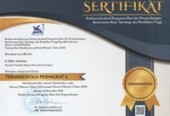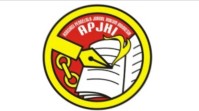Adat Law as a Foundation for Advancing Indonesian Agrarian Law to Maximise Societal Welfare
DOI:
https://doi.org/10.28946/slrev.Vol8.Iss2.3710.pp376-392Keywords:
Adat Law, Agrarian Law, Prosperity of the People.Abstract
The evolution of agrarian law in Indonesia, particularly land law, must adhere to the constitutional mandate of promoting the welfare of the populace. This subject is compelling because existing studies predominantly address the legal-formal dimensions of customary land law without adequately examining its practical implications for public welfare. This research investigates whether the development of Indonesian land law is in accordance with the Agrarian Law and explores how to formulate legal frameworks that mitigate land disputes and conflicts related to the utilisation of Ulayat Land for development purposes. The objective is to present alternative recommendations for resolving national agrarian law issues, often diverging from constitutional directives. Employing a normative research method, this study draws on both legal and non-legal materials through philosophical, legislative, historical, conceptual, comparative, and futuristic lenses. The findings reveal that the current development of national agrarian law does not fully align with the Agrarian Law's mandate to enhance the welfare of the Indonesian people. Therefore, this research offers alternative legislative methods aimed at producing agrarian legal instruments that more effectively promote the prosperity of the Indonesian population.Downloads
References
Bachriadi, Dianto, and Erfan Faryadi. “Perubahan Politik, Sengketa, Dan Agenda Pembaruan Agraria Di Indonesia: Reformasi Agraria.†Jakarta: Lembaga Penerbit Fakultas Ekonomi Universitas Indonesia, 1997.
Bakri, Muhammad, and Fitarah Akbar Wirawan. “‘Konsep Kepemilikan Tanah Ulayat Masyarakat Adat Minangkabau.’†Jurnal Hukum & Pembangunan 50, no. 3 (2020): 594.
“Concept of Participation in Customary Law Emerges,†n.d.
Farida, Any. “Teori Hukum Pancasila Sebagai Sintesa Konvergensi Teori-Teori Hukum Di Indonesia.†Jurnal PERSPEKTIF 21, no. 1 (2016): 60.
Hadikusumah, Perksa Hilman. “Pokok-Pokok Pengertian Hukum Adat.†Bandung: Alumni, n.d.
Harsono, Boedi. “Hukum Agraria Indonesia Sejarah PembentukanUdang-Undang Pokok Agraria, Isi Dan Pelaksanaannyaâ€, Jilid I, Hukum Tanah Nasionalâ€. Edisi Revi. Jakarta: Jambatan, 1999.
Hendratiningsih, S., A. Budiartha, and Andi Hernandi. “‘Masyarakat Dan Tanah Adat Di Bali.’†Jurnal Sosioteknologi 15, no. 7 (2008): 8.
Indonesia, in the 1945 Constitution of the Republic of. “CHAPTER XIV Social Welfare, Article 33 Was Formulated,†n.d.
———. “Social Welfare Development Can Be Interpreted as a Comprehensive Program That Covers Various Aspects Based on the Perspective of the Indonesian Nation Based on Its Customary Law,†n.d.
Jasmani, H. Yacob. “‘Hukum Sebagai Alat Rekayasa Sosial Dalam Praktek Berhukum Di Indonesia,.’†Jurnal Masalah-Masalah Hukum 40, no. 3 (2011): 372.
Kaltim.tribunnews.com. “Poetoesan Congres Pemoeda-Poemoeda Indonesia,†n.d.
Law, Customary. “Customary Law Which Has a Communal/Familial, Partner/Partnership, and Religious Magical Perspective, Does Not See Interaction in Society, as Competition between Individuals to Fight over Material/Possessions as Objects,†n.d.
Law, Western Civil. “Legal Subjects or Persons Are Distinguished between Natural Persons, Namely Human Beings or Natural Like Persons, and Legal Creation Persons Called Recht Persons, Which in Legal Terminology Are Referred to as Legal Entities, Consisting of Public Legal Ent,†n.d.
Nasional.kompas.com. “Sifat-Sifat Hukum Adat,†n.d. https://nasional.kompas.com/read/2022/06/19/02150061/sifat-sifat-hukum-adat?page = all, diakses 23 Desember 2023.
Rahardjo, Satjipto. “Hukum Dalam Jagat Ketertiban.†Jakarta: UKI Press, 2006.
Shebubakar, Arina Novizas, and Marie Remfan Raniah. “‘Hukum Tanah Adat/Ulayat.’†Jurnal Hukum Dan Kesejahteraan 4, no. 1 (2019): 15.
Soesangobeng, Herman. “Filosofi Adat Dalam UUPA,.†Jakarta, 1998.
UUPA. “In Accordance with the Basic Principles Mentioned above, the Word 'Controlled' in This Article Does Not Mean 'Owned', but Is the Meaning, Which Gives Authority to the state, as the Ruling Organization of the Indonesian Nation," n.d.
———. “It Is Necessary to Have a National Agrarian Law, Which Is Based on Customary Law Regarding Land,†n.d.
———. “The Formulated of the Article 1,†n.d.
Wignjodipuro, Soerojo. “Pengantar Dan Asas-Asas Hukum Adat.†Jakarta: Gunung Agung, 1983.
Wignjodipuro, Surojo. “Pengantar Dan Asas-Asas Hukum Adat.†Jakarta: Gunung Agung, 1983.
Wiranata, I Gede AB. “Hukum Adat Di Persimpangan.†lampung: Universitas Lampung, 2009.
Www.google.com. “Pancasial Bersumber Dari Hukum Adat,†n.d. https://www.google.com/search?q=Pancasial+bersumber+dari+hukum+adat&rlz=1C1CHBF_ idID1077ID1077&oq=Pancasial+bersumber+dari+hukum+adat&gs_lcrp=EgZjaHJvbWUyBggAEEUYOTIJCAEQIRgKGKABMgkIAhAhGAoYoAEyCQgDECEYChigATIJCAQQIRgKGKABMgkIBRAhGAoYoAHSAQkyMDA5MGowajeoAgCwAgA&sourceid=chrome&ie=UTF-8#ip=1.
Www.kompas.id. “Konflik-Agraria-Meningkat-Sepanjang-2022-Kemauan-Politik-Jadi-Tumpuan-Pengelesaian.†Accessed September 12, 2023. https://www.kompas.id/baca/humaniora/2023/01/09/konflik-agraria-meningkat-sepanjang-2022-kemauan-politik-jadi-tumpuan-pengelesaian.















